The National Institute of Hygiene and Epidemiology has ordered 10 types of vaccines from domestic manufacturers to provide free vaccinations to children under the National Expanded Immunization Program.
On the morning of January 2, a representative of the National Institute of Hygiene and Epidemiology said the above, adding that they had signed an order contract as soon as the two ministries of Finance and Health approved the prices of 10 domestically produced vaccines.
Specifically, the Institute purchased 1.55 million doses of tuberculosis vaccine (BCG), 1 million doses of hepatitis B vaccine, 4.98 million doses of oral polio vaccine (OPV), 1.9 million doses of measles vaccine, 1.7 million doses of measles-rubella vaccine, 1.4 million doses of Japanese encephalitis vaccine, more than 1.53 million doses of diphtheria-pertussis-tetanus combination vaccine (DPT), more than 1.47 million doses of tetanus vaccine, and nearly 1.38 million doses of tetanus-diphtheria vaccine (Td).
These 9 vaccines are enough to catch up on doses for children who have not been vaccinated in 2023 and children who are scheduled for vaccination in the first 6 months of 2024. In addition, nearly 550,000 doses of Rota vaccine to prevent acute diarrhea, a new vaccine included in the Expanded Immunization Program for children under 1 year old. This vaccine is expected to be deployed from the second quarter of 2024.
The above vaccines were received by the National Institute of Hygiene and Epidemiology and distributed to localities in early January. Vaccine distribution will be increased in many trips, ensuring that vaccination needs are met at all commune and ward health stations.
To ensure vaccination safety, health stations increase the number of vaccination sessions, ensuring that 50 children are vaccinated in one session; carry out screening procedures, provide consultation, and instruct parents on how to care for and monitor children after vaccination.
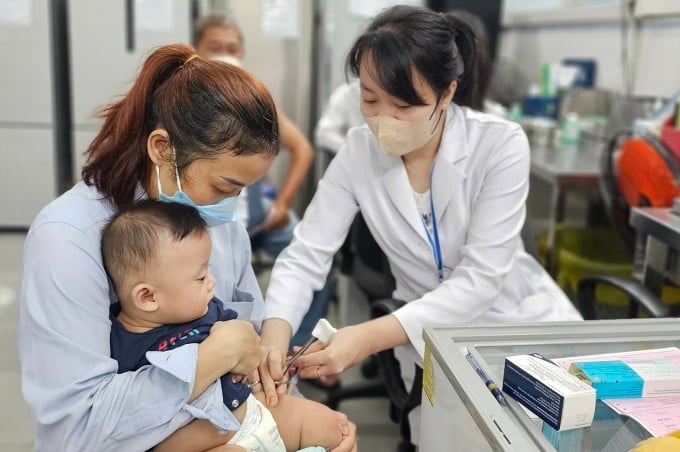
Vaccination for children in Ho Chi Minh City. Photo: Tuan Dung
Recently, many provinces and cities have run out of expanded immunization vaccines. Specifically, there has been a shortage of 5-in-1 vaccines since February, a shortage of DPT vaccines since April, and most of the remaining vaccines have run out since October. Currently, the whole country has run out of expanded immunization vaccines.
The National Expanded Immunization Program has been implemented since 1985, providing free vaccinations for children under 1 year old. The program provides 10 types of vaccines, preventing tuberculosis, diphtheria, whooping cough, tetanus, hepatitis B, pneumonia/meningitis caused by Hib bacteria, polio, measles, rubella and Japanese encephalitis.
From 2016 to 2022, free vaccines were purchased from the state budget. In 2023, according to the Budget Law, provinces and cities will purchase vaccines from their local budgets, but face difficulties in arranging and approving funding, and problems with bidding procedures, price approval, and implementation experience. This is the reason for the serious shortage of vaccines.
The Government then assigned the Ministry of Health to centrally purchase vaccines according to the Central budget. The Ministry of Health reviewed regulations and purchased by order (a 9-step process). According to regulations, vaccine manufacturers develop pricing plans for appraisal and then submit them to the Ministry of Finance for approval before they can buy and sell. This process is slow, causing vaccines to run out.
Le Nga
Source link


![[Photo] Close-up of Tang Long Bridge, Thu Duc City after repairing rutting](https://vphoto.vietnam.vn/thumb/1200x675/vietnam/resource/IMAGE/2025/5/19/086736d9d11f43198f5bd8d78df9bd41)

![[Photo] President Luong Cuong presents the 40-year Party membership badge to Chief of the Office of the President Le Khanh Hai](https://vphoto.vietnam.vn/thumb/1200x675/vietnam/resource/IMAGE/2025/5/19/a22bc55dd7bf4a2ab7e3958d32282c15)
![[Photo] General Secretary To Lam attends the conference to review 10 years of implementing Directive No. 05 of the Politburo and evaluate the results of implementing Regulation No. 09 of the Central Public Security Party Committee.](https://vphoto.vietnam.vn/thumb/1200x675/vietnam/resource/IMAGE/2025/5/19/2f44458c655a4403acd7929dbbfa5039)

![[Photo] Panorama of the Opening Ceremony of the 43rd Nhan Dan Newspaper National Table Tennis Championship](https://vphoto.vietnam.vn/thumb/1200x675/vietnam/resource/IMAGE/2025/5/19/5e22950340b941309280448198bcf1d9)


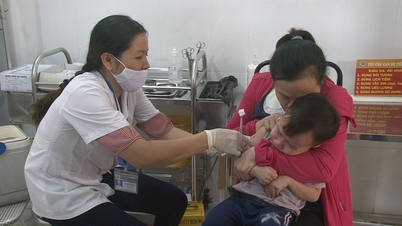
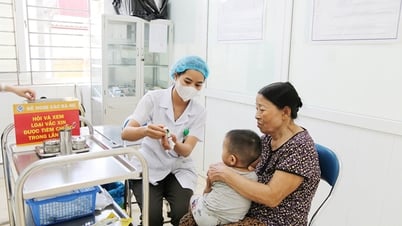

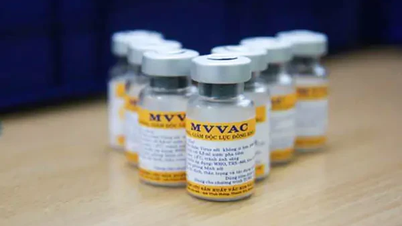




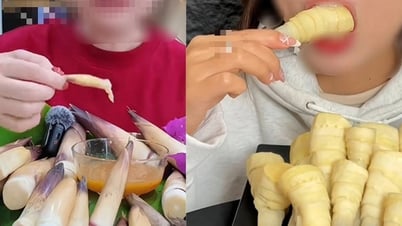

































































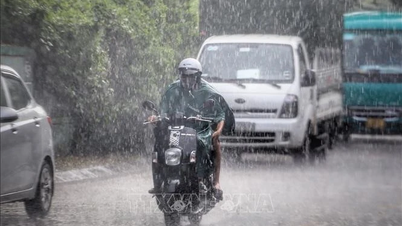










![[VIDEO] - Enhancing the value of Quang Nam OCOP products through trade connections](https://vphoto.vietnam.vn/thumb/402x226/vietnam/resource/IMAGE/2025/5/17/5be5b5fff1f14914986fad159097a677)



Comment (0)